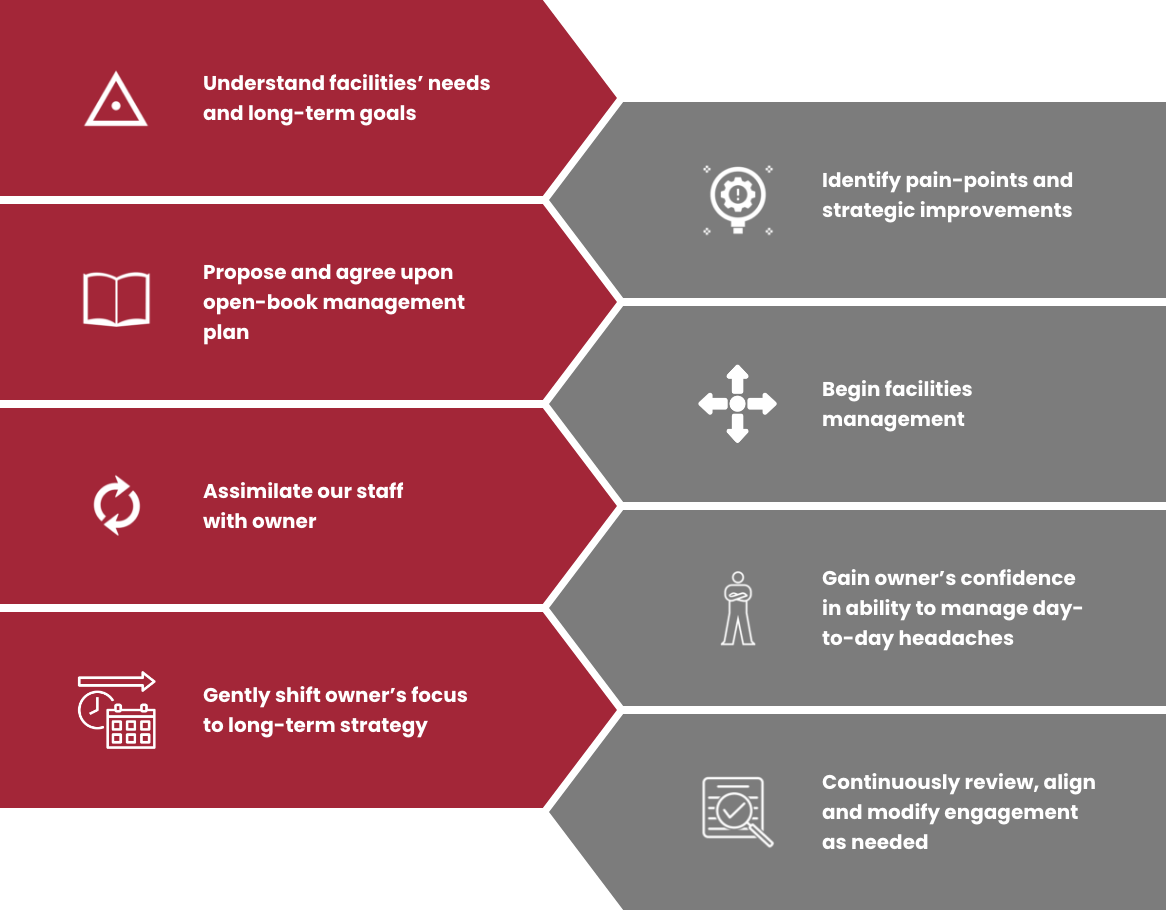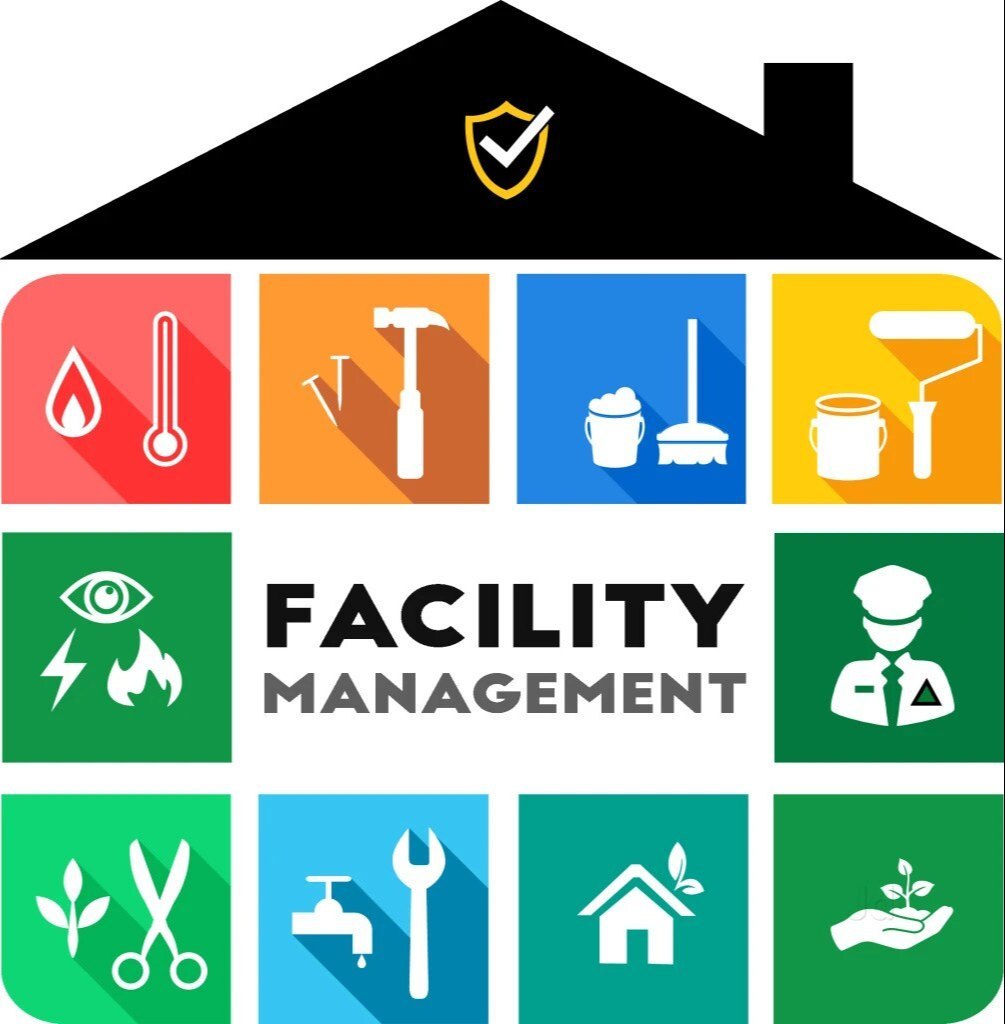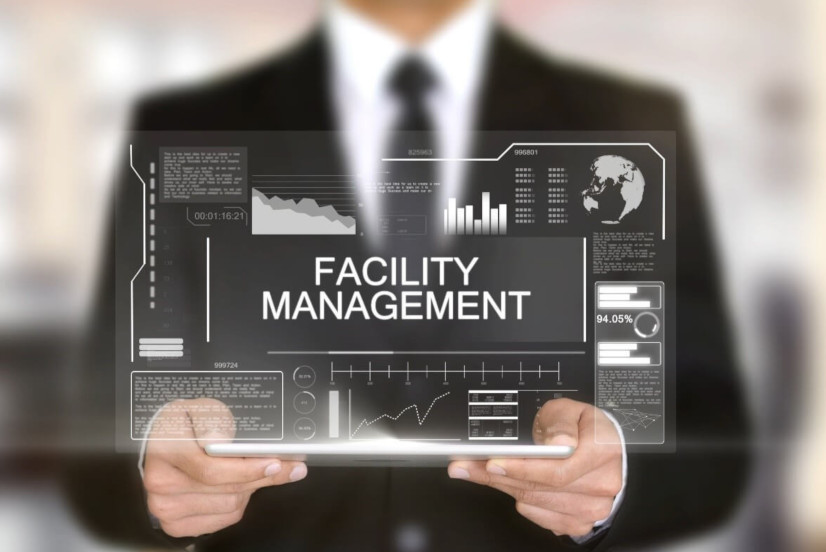Key Fads Forming the Future of Center Management in 2024
As we look in advance to 2024, the landscape of center monitoring is poised for significant change, driven by a number of vital fads. The combination of clever structure modern technologies and a change towards data-driven decision-making guarantee to enhance operational effectiveness while prioritizing sustainability in practice. The development of crossbreed work models is reshaping office atmospheres, demanding innovative design services that cater to progressing worker demands. Amid these changes, the concentrate on owner health remains to obtain traction, emphasizing the value of a healthy office. Exactly how these trends will certainly materialize in technique stays an important inquiry for sector professionals.
Smart Building Technologies

Smart structure technologies incorporate a broad range of systems, including smart lights, HVAC controls, and safety and security systems. By integrating these systems, center supervisors can check and readjust parameters in real-time, resulting in substantial reductions in power waste and functional prices. Smart sensors can spot occupancy degrees and adjust illumination and temperature accordingly, making sure that energy is only made use of when necessary.
Moreover, these innovations promote improved information collection, permitting organizations to track usage patterns and determine chances for additional renovations. The application of wise building innovations not just contributes to sustainability goals yet also produces much healthier workplace that can boost worker efficiency and contentment.
As we move into 2024, the adoption of clever structure technologies will likely accelerate, reflecting a wider change in the direction of more smart, responsive, and lasting facility monitoring practices.
Data-Driven Choice Making
Significantly, organizations are leveraging data-driven choice making to boost facility management practices. By utilizing information analytics, center managers can derive workable insights that dramatically boost functional effectiveness and source allowance. The combination of innovative modern technologies, such as IoT sensors and real-time tracking systems, makes it possible for the collection of vast quantities of data on building performance, tenancy rates, and power consumption.
This wealth of details enables facility supervisors to determine fads, predict maintenance demands, and proactively address concerns before they rise. Predictive analytics can anticipate tools failings, lowering downtime and fixing expenses. Additionally, data visualization tools assist in better communication among stakeholders, making sure that informed choices are made collaboratively.
In addition, data-driven techniques boost calculated preparation by allowing center supervisors to assess the performance of current practices and make educated options relating to financial investments in innovation or framework. As companies significantly focus on operational quality, data-driven decision making is poised to end up being a cornerstone of effective center management approaches in 2024 and past. Ultimately, the capacity to take advantage of data effectively will encourage organizations to develop extra reliable, efficient, and durable facilities.
Sustainability and Environment-friendly Practices
The emphasis on data-driven choice making naturally lines up with the growing concentrate on sustainability and green techniques within facility management. As organizations progressively focus on environmental duty, facility supervisors are leveraging analytics to optimize source use, decrease waste, and decrease carbon footprints. This critical approach allows the integration of energy-efficient systems, such as LED lights, smart cooling and heating controls, and renewable power sources into center operations.
Additionally, the implementation of sustainable techniques extends beyond power usage. Facility managers are promoting and taking on green products reusing initiatives to develop a circular economic situation within their centers. This not only enhances the environmental account of the organization however additionally cultivates a society of sustainability among workers.
Conformity with ecological regulations is one more essential aspect driving the adoption of eco-friendly techniques. By utilizing information analytics, facility managers can monitor compliance metrics and determine locations for improvement, ensuring adherence to local and worldwide sustainability criteria.
Crossbreed Job Versions
A significant shift towards hybrid work models is reshaping read the landscape of facility management in 2024. This paradigm combines remote and in-office work, necessitating a reevaluation of space usage, resource allocation, and employee engagement strategies. Organizations are increasingly recognizing the significance of flexible workspaces that deal with diverse demands and choices.
Center supervisors should adjust by applying functional workplace designs that support joint efforts while supplying locations for focused work. This consists of the integration of innovation to facilitate seamless interaction and cooperation among remote and in-office staff members. Smart building services, geared up with analytics and sensing units, permit for real-time surveillance of space use, allowing organizations to maximize their settings efficiently.
Additionally, crossbreed job models emphasize the need for effective center monitoring that focuses on worker experience. In essence, the hybrid job version is reinventing center administration, like it motivating a proactive approach to meet the advancing needs of the labor force.
Improved Occupant Health
As companies welcome hybrid job models, an enhanced concentrate on resident wellness is coming to be indispensable to facility management strategies. Facility Management. This change acknowledges that a pleased and healthy labor force directly impacts performance and retention rates. Center managers are currently focusing on environments that promote physical and mental health, incorporating aspects such as all-natural illumination, biophilic layout, and available wellness sources

Technology plays a critical duty in this evolution. Smart building systems can keep track of ecological variables and change setups in real-time, making sure ideal convenience degrees - Facility Management. try this web-site Feedback mechanisms, such as occupancy sensors and employee surveys, allow facility managers to constantly refine wellness initiatives based on resident requirements.

Final Thought
In 2024, the future of facility management will certainly be significantly affected by the assimilation of clever building technologies and data-driven decision-making, promoting boosted operational efficiency. Sustainability initiatives will certainly focus on environment-friendly practices, while the appearance of hybrid job models will necessitate flexible office layouts. In addition, an enhanced focus on occupant health with innovative heating and cooling systems and biophilic style will certainly add to healthier work environments. These fads collectively underscore the progressing landscape of facility monitoring in response to modern challenges and possibilities.
Facility managers are taking on eco-friendly materials and advertising recycling efforts to develop a circular economic climate within their centers.A significant change towards hybrid job versions is reshaping the landscape of facility administration in 2024.In addition, crossbreed work models highlight the demand for reliable facility management that prioritizes worker experience.As companies welcome hybrid job versions, a heightened focus on passenger health is coming to be essential to center monitoring strategies.In 2024, the future of facility management will be substantially influenced by the combination of clever building technologies and data-driven decision-making, fostering enhanced functional effectiveness.